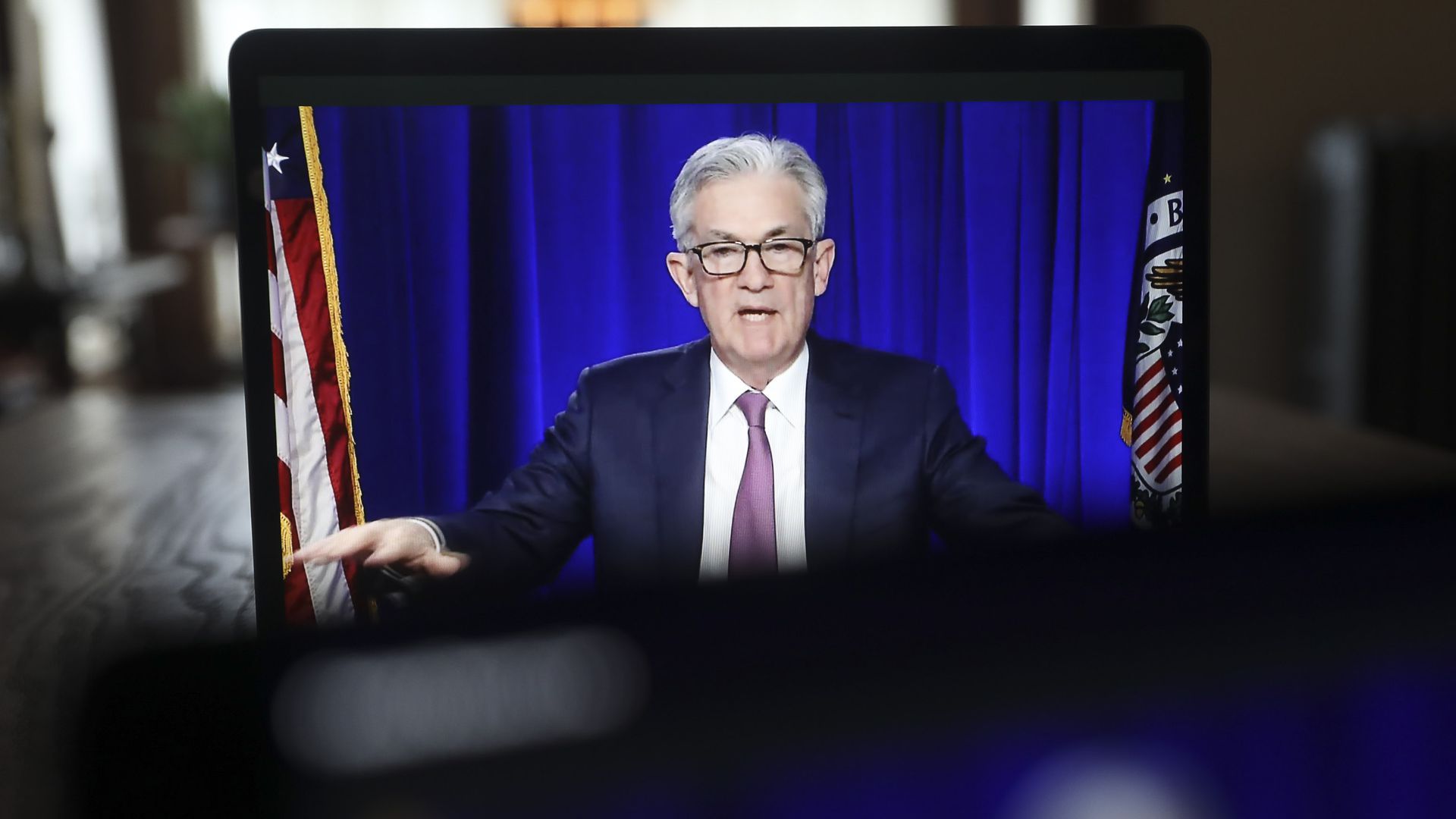The Fed's plans depend on the virus
Add Axios as your preferred source to
see more of our stories on Google.

Photo: Daniel Acker/Bloomberg via Getty Images
The Federal Reserve is happy with the progress the economy has made so far but cautions that the trajectory of the pandemic could derail things.
Driving the news: According to the minutes of the Federal Open Market Committee policy-setting meeting July 27-28, "various" participants said that tapering of the Fed's asset purchases should start relatively soon, while "several others" said it should start "early next year."
Why it matters: Unemployment has been coming down while prices have been inflating, conditions that are on track to meet the Fed’s definition of "substantial further progress."
- When the economy meets this vaguely defined milestone, the Fed is expected to taper its quantitative easing program.
- Taken together, "most" FOMC participants noted that if the economy continues growing the way it has been lately, then tapering should start by the end of the year.
Yes, but: The group agreed risks to economic growth were "skewed to the downside" and that uncertainty was "elevated."
- "In particular, the probability that the course of the pandemic would turn out to be more adverse than the staff's baseline assumption was viewed to be higher than the probability that a more favorable outcome would occur," the minutes read.
State of play: On a webcast Tuesday, Fed chair Jerome Powell acknowledged that COVID is "still casting a shadow on economic activity."
The big picture: The minutes released on Wednesday reflect what the Fed was thinking almost a month ago, and so the information is arguably a bit stale. That said, they are in line with expectations that a tapering announcement will come in one of the Fed’s upcoming FOMC meetings.
What to watch: The next major update we’ll get from the Fed is when Powell speaks at the Jackson Hole Economic Policy Symposium, Aug. 26-28.
